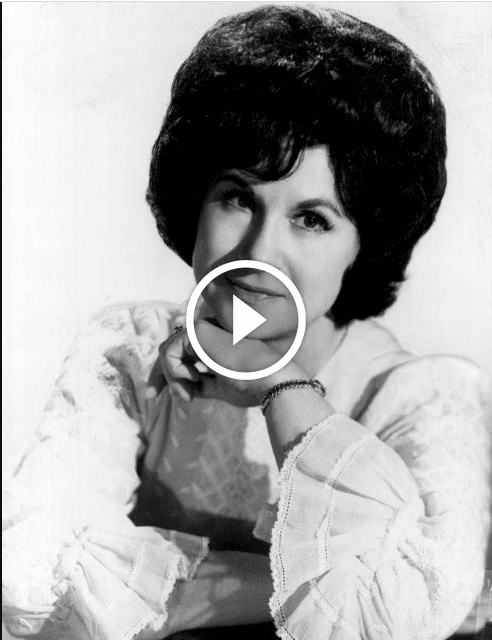In 1952, the country music landscape was a decidedly male domain. Male singers dominated the charts, and songs often portrayed women as the source of heartache and infidelity. Then came Kitty Wells, a pioneering female artist with a powerful voice and an even stronger message. Her response song, “It Wasn’t God Who Made Honky Tonk Angels”, challenged the status quo and became a surprise smash hit, forever altering the course of country music.
Released in 1952, the song was a direct answer to Hank Thompson’s chart-topping hit, “The Wild Side of Life”. Thompson’s song cast blame on “honky tonk angels,” a term used to describe women frequenting honky-tonks, for leading men astray. “It Wasn’t God Who Made Honky Tonk Angels”, written by J.D. “Jay” Miller, took a different approach. It flipped the script, arguing that the blame for marital woes often lay with unfaithful men who strayed despite vows.
Produced by Bullet Records, the song’s musical arrangement was pure honky-tonk. A driving rhythm section, featuring a prominent steel guitar, provided a lively backdrop for Wells’ assertive vocals. Her delivery was both feisty and heartfelt, as she countered Thompson’s narrative with a confident rebuttal. The song’s lyrics resonated with women across the country who felt tired of being unfairly portrayed as the sole culprits in failed relationships.
“It Wasn’t God Who Made Honky Tonk Angels” wasn’t just a statement; it was a commercial phenomenon. The song spent a remarkable six weeks at number one on the Billboard country charts, a feat unheard of for a female artist at the time. This success not only propelled Wells to national stardom, but also opened doors for other female artists in country music.
Beyond the charts, the song’s cultural impact was undeniable. “It Wasn’t God Who Made Honky Tonk Angels” became an anthem for female empowerment, a bold statement challenging the prevailing gender stereotypes within the genre. The song’s message resonated for decades to come, paving the way for a new generation of strong female voices in country music.
Today, “It Wasn’t God Who Made Honky Tonk Angels” remains a cornerstone of Kitty Wells’ legacy. It’s a testament to the power of music to challenge societal norms and a reminder of the pivotal role Wells played in shaping country music history.

